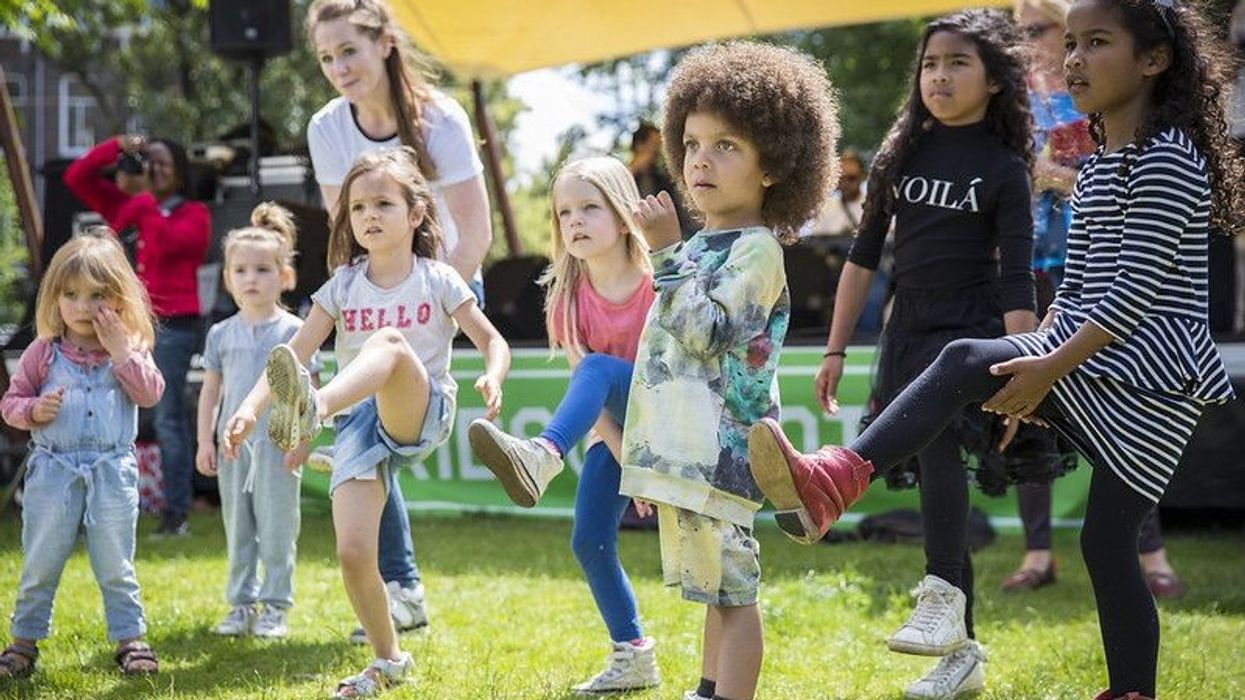When is bad behavior a normal part of being three, and when is it out of control?
Different parents will have different answers. All kids have the occasional meltdown, but it's important to get to the bottom of things if these control issues get out of hand.
A child's tantrum, especially in a public space, can be a crushing experience. You want to comfort them, but they won't take hugs. You want to reason with them, but they just scream in your face. You want to pick them up and carry them somewhere less public, but they kick and shout all the more.
The occasional tantrum is extremely common. The phrase 'terrible twos' was coined in acknowledgement of this widely experienced phenomenon. But the term is also a little misleading. Kids can develop tantrums well before they turn two, and the tendency of children to get all shouty and stubborn can be just as strong in the 3-year-old (and beyond).
But where is the line between a normal tantrum-prone 3-year-old and a child with some deeper underlying behavior issues? And what can you do about it if your kids really do seem out of control? This article looks at various behavior problems in preschoolers, from toddler hitting to shouting fits, and what you can do to make it stop.
For more guidance, take a look at our guide to [7-year-old tantrums] and an example [behavior management plan].
What Kinds of Behaviour Should I Be Worried About In My 3 Year Old?
Every 3-year-old will have good moments and bad moments, sometimes in quick succession.
Toddlers' brains are still making sense of the world and its rules. Rapid mood swings and seemingly irrational behavior are two consequences.
At the same time, young children don't always have the words to communicate their desires vocally, so they instead use their bodies and gestures to indicate emotion.
All this can culminate in a tantrum or meltdown, a short outburst of crying, shouting or screaming that often has the most trivial trigger (at least from the perspective of parents or guardians).
Occasional tantrums are normal in most if not all small children, both male and female. Meltdowns usually happen because the child feels an intense bout of injustice, they've been denied another go on the swings, or you won't buy them some candy.
The word "No" has, in all likelihood, just been dropped by an adult. They are too young to understand the rationale behind your restrictions. All they know is that they want something and they're not getting it.
Three-year-olds can misbehave in many other ways, of course. They may show aggressive behavior towards other children. They might have a habit of breaking or destroying stuff.
Toddler biting is often a side effect of the teething process. It's important to realize that all of these behaviors are pretty common, but also to know when things have gone too far. Professional help is available, should you need to seek anger management for children.
Behavioral issues usually start at around 18 months old. Before that time, children have less mobility, simpler needs and less free will.
Tantrums and angry spells are then pretty common in many if not most two and three year olds. By the age of five, when children have better language skills and more control over their emotions, tantrums should settle down (though not always).
You should have concerns if the tantrums erupt several times a day, every day, or when they last for longer than a few minutes at a time. Another cause for concern is if the child remains in a grumpy or sullen state for long periods outside of the tantrums.
If your child finds it difficult to engage in play with other children, or if they're lashing out at others on a regular basis, then you should also take further steps.
My 3 Year Old's Behavior Is Out Of Control, What Should I Do?
Most parents muddle through the occasional tantrum and don't seek any professional help. These episodes are one of the more dispiriting parts of parenting, but we nearly all go through them.
Friend networks and parenting websites can be crucial at this time. They're both good ways to share experiences, find someone who'll listen, let off steam and to come to the realization that most kids act like this. You could also try talking to teachers or kindergarten staff, to see if your child has discipline problems away from home.
Some kids can get so out of hand, however, that it becomes clear something deeper is amiss. It's time to get help.
Before seeking professional help, first make sure you're doing all the right things to calm a tantrum-prone child. The single most important thing is not to get angry back at them.
It can be tricky to hold your calm when a child is screaming at you in the supermarket, but shouting back or threatening discipline ("Just wait till I get you home!") is the worst thing you can do.
Give hugs, talk gently, listen carefully and try to understand what is frustrating them. At the same time, parents shouldn't give in to their shouted demands, or they'll think they can get their way by behaving like this every time.
Most importantly of all, never ignore the child and leave them to cry. This only reinforces any anxieties that kids might have.

Parents and carers could also use distraction techniques. Small children can be very emotional, but can also switch from feeling distraught to happy in the space of a minute.
Most parents find effective distractions to move their child back to the calm state, but it can take a bit of experimentation. Try using one of their toys for a game of peekaboo, or exclaim "Oh wow, look at this!"
and steer them off to look at something unusual nearby. Importantly, you should always acknowledge your child's distress first.
Hug or soothe them with words for a little while before attempting the distraction. This helps them see that they're loved and cared for, and goes part of the way to reversing the hurt.
If the tantrums continue, and your child loses control more often than seems normal, then it's very important not to blame yourself. You are not a bad parent.
Kids get angry or aggressive for many different reasons, and it's unlikely to be directly related to things that you have personally done (or not done). If it's getting to that stage, it's time to consult a behavioral psychologist who can help you understand the underlying issues.
What Kinds Of Therapy Are There For Children? And Do They Work?
Children who are frequently 'out of control' may well have some underlying problem that needs professional attention. They might suffer from a form of anxiety, feeling stress in seemingly normal situations.
It's possible that your child could have some kind of learning difficulty, the frustration of not being able to accomplish certain tasks can contribute towards the tantrums.
ADHD, depression, autism spectrum disorders and problems dealing with sensory information can also play a role. This complex set of potential problems are best navigated by a trained professional such as a behavioural psychologist.
Mental health professionals can help you discover the underlying causes to frequent meltdowns. They'll probably begin by exploring which skills the child is struggling to learn.
Do they have issues with problem solving, for example, or understanding appropriate behavior, or communicating their feelings to adults?
All young kids are in the early days of learning such skills, but it may be possible to spot if a 3-year-old is falling behind in any of them, and thereby getting angry or lashing out.
The child psychologist may be able to help you focus on these areas and offer effective ways to help your child develop in a more positive direction. If your child has been diagnosed with behavioral problems, you might find that the numerous mental health charities aimed at children can be of help with further support and information.
If you feel that the problem isn't quite severe enough to warrant a psychologist, you might also be able to find local parenting programs (such as Webster-Stratton in the US) that give you a more informal setting to explore the issues affecting your child, in a group with other parents.
What Age Should Children Stop Having Tantrums?
The screaming meltdown we associate with two or three-year-olds should die down by the time the child reaches five. At that age, most children learn to regulate their emotions, and have built up enough experience to find better ways of dealing with problems.
That's not to say you're out of the woods completely. Tantrums are, ultimately, one of those things that can flair up at any age. We all know adults who can behave like angry toddlers from time to time!
So long as these are only occasional during the early school years, then there's probably nothing to worry about. If your child continues to have meltdowns several times a day, then you should consider professional help.
What Are Some Tips For Helping My Child With Their Tantrums?
Every child is different, and every parent will learn individual ways to bring tantrums under control. Distraction techniques, as already mentioned, are one of the commonest strategies.
Another idea is to try and offer a happy exit strategy. "Hey, how about we snuggle up and watch Peppa Pig when we get home? ", for example.
This has the twin effect of causing a distraction from whatever's upsetting them, and also dangles the possibility of something fun so is particularly useful for strong-willed children. Some parents find that simply crouching down and hugging their child, while using words of love and encouragement, is enough to calm the angry child, though this won't work for everyone.
You could also try reinforcing any good signs they're giving out. If "You know daddy loves you, sooo much?" gets a nod, then carry on with the positive affirmations, "That's good.
Because I do. I love you and will always look after you, and I know you love me too."
Of course, the best way to cure the tantrums is to stop them happening in the first place. Try to avoid using the word "No", or variations like "Not now", as these are very common triggers for meltdowns.
Sometimes it wouldn't hurt to go part way to giving them what they want, a compromise. That little bit longer on the swings might actually be enough to get them to listen; five more minutes of 'Sesame Street' could tip the balance, so long as they know in advance that this is the limit.
You could try negotiation: "OK, it could be fun to have a little longer on the swings. Let's count to 20 more pushes, and once we reach that number, it's time to go.
How about that?" This won't work with the youngest children, but many three year olds will understand this compromise and play along.
If you found this article about kids' behavior helpful, then why not take a look at our [child behaviour checklist], or our [sample evening routines]?









